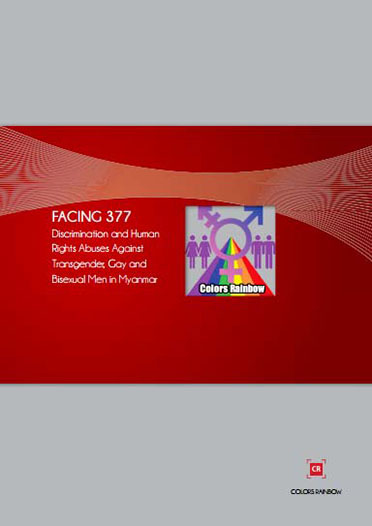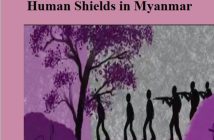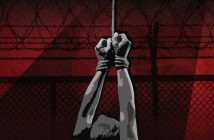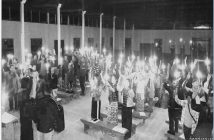Executive Summary
Following military coups in 1962 and 1988, multiple military regimes have ruled over Myanmar (formerly known as Burma). Widespread human rights abuses conducted by police and military against the general public and ethnic minorities are well known and documented.
The year 2008 saw the creation and adoption of a new constitution through a controversial referendum followed by a flawed parliamentary election held in 2010. By-elections held in 2012 saw the opposition party, the National League of Democracy (NLD), enter Parliament for the first time, though with continued reports of election irregularities. Despite significant political change in Myanmar, legal reform, especially in the sectors of human rights protection and limits to police and military power, has been slow in development and implementation. Legal reform, judicial review, and military and police limitations on power and authority have yet to occur in a systematic and comprehensive way. As a result of slow reform, entrenched homophobic social attitudes, and unrestrained police authority to arbitrarily arrest and detain, members of the Lesbian, Gay, Bisexual, and Transgender (LGBT) community human rights abuses and discrimination are rampant.
This study was carried out in the second half of 2012 and supplemented by an extensive desk study in 2013. The primary objective was to identify and document instances of discrimination and human rights abuse of LGBT individuals living in Myanmar. The secondary objective of this study was to evaluate how the continued existence of Myanmar’s anti-sodomy law (Myanmar Penal Code Section 377) and other laws used to target LGBT individuals contributes to harmful social discrimination, impunity for law enforcement agents who abuse LGBT people, and the repression of sexual orientation and gender identity in the Myanmar LGBT community. A qualitative study of 25 individuals in Myanmar’s LGBT community was conducted to document their stories of discrimination and abuse, and to determine how Myanmar Penal Code Section 377 and other vaguely formulated laws are used in an abusive fashion to extort and justify verbal, physical, and sexual abuse of the LGBT community. Access to Myanmar’s LGBT community was highly limited in this study, due in large part to the sensitivity of the topic, the pervasive fear of abuse, and social ostracization of the community.
This study documents widespread instances of discrimi-nation in education and employment, and verbal, physical, and sexual abuse by family members, community members, and law enforcement agents discriminatory and criminal acts against LGBT. They are victims of numerous discriminatory acts, committed both by ordinary citizens as well as law enforcement and state agents. Myanmar Penal Code Section 377 legally sanctions the punishment of homosexuality and therefore contributes to a culture of impunity that when used together with other sections of the Penal Code, Criminal Code, and Police Act allows for wide discretionary powers for the police to make arrests on the grounds of suspected criminal acts that are vaguely defined in the provisions. Police officials can perpetrate not only discriminatory and abusive acts like name-calling and ridiculing, but also physical violence, bribery, and extortion. The criminalization of an act pertaining to a specific group of individuals sanctions and legitimises already existing prejudicial attitudes towards LGBT. Public discrimination and stigmatization prevent the majority of LGBT in Myanmar from fully enjoying their human rights, while limiting access to remedy or legal protection.
The political and legal climate in Myanmar is ripe for change. Based on interviews conducted with legal experts familiar with LGBT issues during this study, there is a consensus that full repeal of Myanmar Penal Code Section 377 could be feasible. Despite this optimistic outlook, there is also concern that promoting the repeal of Myanmar Penal Code Section 377 could inflame fundamentalist religious groups who see homosexuality as incompatible with traditional Myanmar culture. Therefore, one of the primary recommendations of this study is that advocacy efforts focus their energy on strengthening anti-discrimination and equal rights protection efforts in current legislation under consideration by parliament, in a joint effort with organizations working towards equal rights for all Myanmar citizens. Adoption of international treaties such as the Convention Against Torture (CAT), the International Covenant on Economic, Social and Cultural Rights, and the International Covenant on Civic and Political Rights would enhance human rights protection for all citizens of Myanmar, not just those of the LGBT community. Additionally, efforts to limit the powers and oversight of the police and military would also serve to further protect the lives of LGBT people. It is important to note that any legal reform or effort to promote legislation on the protection of LGBT rights must be supported by a strong advocacy and grassroots movement. This is also supported by similar movements to repeal homophobic and transphobic laws in India, Singapore, and Nepal, where strong social and community advocacy formed the basis successful steps towards full repeal of sections of penal and criminal codes criminalizing same-sex relations and the implementation of additional legal protection for LGBT living in these three countries.
With state-sponsored homophobia and transphobia, social attitudes, and law enforcement with unmonitored and unlimited power, Myanmar’s LGBT population, especially those who are physically and visibly distin-guishable as LGBT, are highly vulnerable, and have been shown to suffer from high instances of depression, psychological trauma, self-censorship, and repression of sexual orientation and gender identity. Notably, this study found that many individuals have been encouraged to alter their “behavior.” This perception of sexual orientation and gender identity as a chosen behavior rather than an inherent attribute of someone’s physiology and identity is common amongst family, friends, communities, and police in Myanmar. This contributes to and supports an already common belief that LGBT people are criminals, thieves, and second class citizens. As the first of its kind, this study documents and finds a culture of fear, shame, and human rights abuse that surrounds the daily lives of LGBT individuals living in Myanmar.
Based on the findings of this study including extensive focus group discussions in three of the five geographical areas from which this study drew respondents, the following are the most significant recommendations: The government of Myanmar should adopt and anti-discrimination and equal opportunity law and incorporate equal protection measures on the basis of gender identity and sexual orientation into existing laws during reform efforts, such as the 2008 Constitution;additionally, Section 377 of the Penal Code should be removed from law. Avenues for complaints of discrimination should be introduced and / or the Myanmar Human Rights Commission’s mandate expanded. Advocacy by LGBT rights groups should be targeted at achieving the above listed recommendations, in addition to lobbying for the full implementation of the National Strategic Plan on HIV and AIDs. LGBT rights groups should also continue to provide legal assistance to victims of abuse and continue documenting all instances of human rights violations. Finally, LGBT rights groups should work to increase their networks by liaising with other minority rights groups to help promote the need for rights protections to include sexual orientation and gender identity.
Specifications
- Publisher: Colors Rainbow
- Language: English
- Paperback: 90 pages







